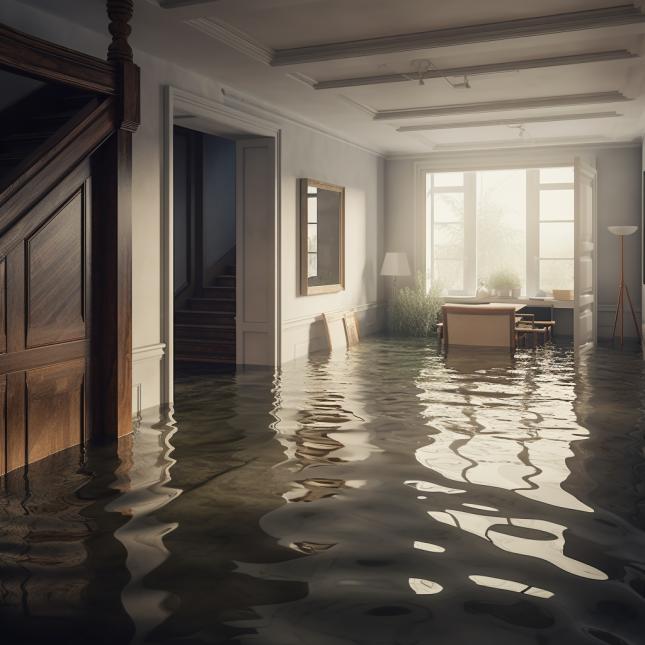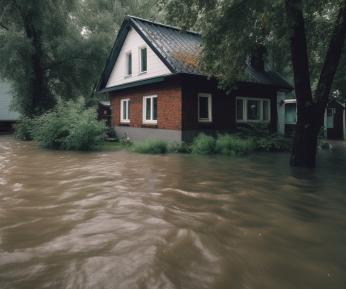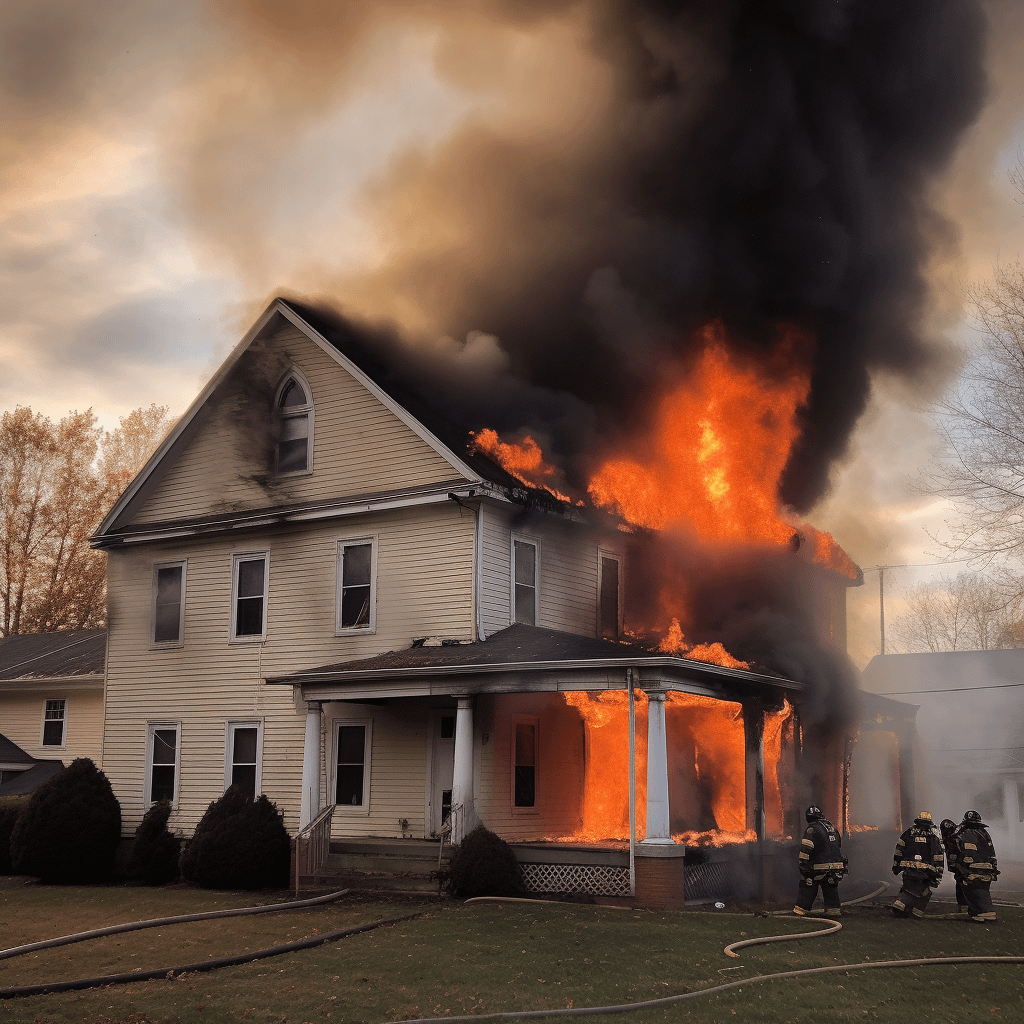Floods are devastating. Just a few inches of water can drastically alter one’s life by destroying their precious possessions and making their home uninhabitable. Some of the most flood-prone areas in Wisconsin include Rock River, Upper Fox River, Cedar Creek, and Milwaukee River. But there are other potentially risky areas wherein excessive rainfall, melting snow, and ice jams can affect anyone.
However, the challenges that renters face are unique compared to those of home and other property owners. Perhaps you have recently experienced flooding and want to know what your renters insurance will cover. You may even have a policy in place that your insurer is refusing to honor. If either situation describes you, it is time to speak with Wallace Law’s insurance dispute lawyer about your flood damage claim.
Can Renters Get Flood Insurance?
Insurance companies often use confusing terms to describe what is covered in their policies. For instance, “flood damage” may mean something completely different than “water damage.” Knowing the nuances of these and other terms is critical to ensuring you understand your renters insurance coverage and that you can use it if the need ever arises.
Typically, renters insurance may cover a number of expenses and losses stemming from sudden, accidental damage, provided that negligence was not the cause. Renters insurance is more likely to cover a sudden and unanticipated event that occurs in your dwelling like a burst water pipe (provided you were not somehow negligent). Generally, renters insurance will not cover water damage caused by a flood.
If you are a renter, you need to know your policy limits (the maximum dollar amount of coverage) to get a better idea of what your insurer will or will not pay for. Ideally, the insurer should pay for a covered incident up to the policy limits, minus any deductible. You will likely need a separate flood damage insurance policy if you are eligible as a renter. There are certain items that flood insurance will not cover in any event, such as vehicles.

When Does Renters Insurance Cover Flood Damage?
While renters insurance will not cover flood damage caused by (for instance) an overflowing nearby river, there are instances in which it will pay for accumulating water resulting from other events. Provided that no negligence was involved, your policy might cover:
- Burst pipes: Renters typically have no control over the pipes that run through and around their dwellings, so a burst pipe could be covered.
- Sudden plumbing issues: If a toilet overflows and causes water damage, particularly if the event could not be predicted or stopped, the renter should be able to receive coverage.
- Rainfall through a damaged roof: There is a difference between an overflowing river and rainfall that leaks into your dwelling due to, for instance, a wind-damaged roof.
The last point demonstrates just how nuanced coverage can be when weather is involved. Flood damage can destroy your personal property upwards of $25,000 or more. If your flood damage claim is denied, you should speak with our renters insurance attorney to understand whether such denial was valid.
How Much Is Renters Flood Insurance?
Annual premiums for renters flood insurance vary based on the amount of coverage and whether the area is considered a high risk for floods. On the low end, policies can cost under $100; meanwhile, they may reach into the thousands in a flood-prone region. Some policyholders can obtain coverage of up to $100,000 at the annual premium rate of just over $300. Research your options and make sure you understand the coverage you are purchasing.
Legal Practice Areas
Contact us for a free consultation.
Commercial Property Insurance Dispute Lawyer
Denied Renters Insurance Claims Lawyer
Property Insurance Dispute Lawyer
Wisconsin Insurance Dispute Lawyer
Do Renters Need Flood Insurance?
Standard renters insurance usually does not cover flood damage that results from heavy rainfall, snow melts, ice dams, and overflowing rivers and lakes. Sudden water damage, like a burst or leaky pipe, is covered in most situations. However, weather-related floods are typically excluded because they affect large geographic areas and are nearly always catastrophic in nature. This sets floods apart from other types of property damage, and is why insurers cover them under specialized policies.
Renters in Wisconsin should consider the following points in deciding whether to purchase a separate flood damage policy:
- Renters insurance covers the tenant’s personal property within the dwelling, not the dwelling itself (the property owner insures this)
- The amount of renters insurance coverage you need will depend on the actual cash value of your possessions, which is the replacement cost of the property when it was new minus the amount of depreciation
- You should make a complete inventory of your property, determine its value at the time of purchase (e.g. by retaining copies of receipts) and update your inventory annually
- Certain types of unique or valuable property such as artwork, antiques, guns, and jewelry may be covered on a limited basis and scheduled separately under your policy
Flood insurance in general covers weather-related floods caused by rain, melting snow, ice, lake or river overflows, and storm surges.
Tips For Wisconsin Renters
These are some ways that renters can protect their property from water and flood damage:
- Keep your personal property off the floor: Valuable items like electronics and personal papers should be placed and stored on shelves. This is especially true if you live in a single-story residence.
- Store valuables in waterproof containers: Anything valuable that you are not using should be stored in waterproof containers. Doing so will help preserve your most personal and sentimental possessions.
- Make an inventory of your valuables: As mentioned above, a home inventory is a great idea for renters, especially if they purchase a flood insurance policy. But even if you only have a standard renters insurance policy, an inventory will make the claims process easier.
- Create an evacuation plan: You should devise a plan to escape your residence in the event of an emergency. Also, consider having an emergency kit ready in the event you are displaced from your home.
- Have a point of contact in an emergency: One of the first things to go down during a flood is the electrical and communications system in the affected area. Have a plan for contacting your family and friends in the event of a natural disaster.
How Can Wallace Law Help File a Flood Damage Claim in Wisconsin?
If any incident like water or flood damages your property, take the following steps:
- Document everything: Take pictures, record videos, and document all expenses made with regards to the damage done to your personal property. Ideally you should have before and after pictures depicting your property so insurance adjusters can better understand the damage.
- Mitigate the damage: As much as possible, you should try to mitigate the damage done to your property. Your policy may require this. For instance, try to remove your personal property or relocate it prior to or during a flooding event to limit your losses.
- Contact your insurance company: Call your renters insurance company right away and follow their instructions for filing a claim. Read your policy and make sure you understand the claims process because it is a time-sensitive matter and the insurer may deny or underpay your claim if you do not follow their instructions.
- Talk to an insurance dispute attorney: If your insurer refuses to pay what it has agreed to, unnecessarily delays processing your claim, or simply denies it, you should seek legal guidance.
These are a few common challenges that renters face with their claims, and here’s how we can help them:
Bad Faith Insurance Practices
“Bad faith” describes a number of different dishonest and unethical practices like lying to policyholders, intentionally delaying the claims process to try to force the policyholder to give up, and denying valid claims. We can review your policy and take action to compel your insurer to live up to its contractual duties.
Disputes Over Coverage Amounts
Your insurer may agree to cover your lost or destroyed personal property, but you may not agree on the proposed claim payout. For instance, the insurer may use a valuation technique you disagree with or refuse to cover something you believe is included in your policy. We understand the claims process and what insurers must pay for, so we are prepared to advocate for you.
Communication Issues
Insurance companies are not always the most responsive, especially after a major event that triggers a number of different claims. If you have flood insurance, for instance, there is a high likelihood that many other policyholders are also filing claims. We help clients by making sure they meet all deadlines on their end (which is especially important since claims are time-sensitive) and by compelling insurers to respond in a reasonable time.
Speak To an Experienced Renters Insurance Dispute Attorney Today For Help
Have you experienced water, flood, or other damage as a renter? Are you running into roadblocks with your insurance company or do you have questions about how much your claim is worth? Let the team at Wallace Law review your case. Contact us today to get started.
Does Renters Insurance Cover Flood Damage: FAQs
Are Landlords Responsible For Flood Damage?
Landlords are responsible for insuring the physical dwelling (e.g. apartment or home) in which renters live, but not for insuring the renter’s personal property. That is their obligation and is exactly why purchasing a renters insurance policy, and possibly a flood insurance property, is so important.
Will Renters Insurance Cover Water Damage?
In general, renters insurance will cover water damage that did not result from either weather (e.g. a flood) or negligence. This includes, for instance, a burst pipe in the wall that the renter had no control over and did not negligently cause. A standard renters insurance policy typically does not cover flood damage.
What’s the Difference Between Water Damage and Flood Damage?
Water damage, which is usually covered in a renters insurance policy, is caused by something other than weather. Some examples are a leaking pipe, a burst pipe, and an overflowing toilet. Some policies may cover water damage resulting from a storm that damages your roof and allows water to leak in.
Flood damage is directly related to a natural flooding event caused by the weather. Heavy rainfall, flash floods, overflowing rivers and lakes, and melting snow and ice that cause flooding are a few examples. These events are usually not covered by a renters insurance policy.
Does Renters Insurance Cover Flood Damage To Personal Property?
Standard renters insurance will not cover flood damage, including to your personal property. The key distinction between water and flood damage described above will most likely apply to your situation. However, it should be noted that every situation is unique, and both your policy and Wisconsin insurance laws will dictate the exact coverage you have.










